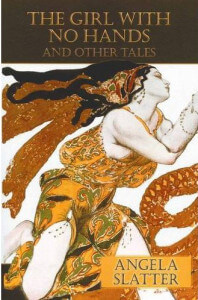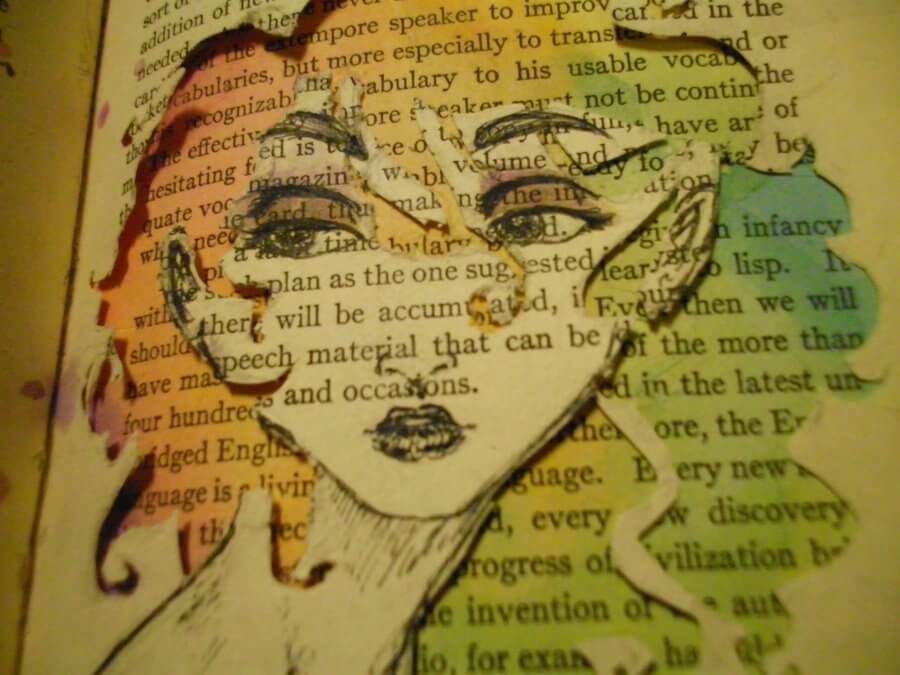
Title: “The Girl with No Hands & Other Tales”
Author: Angela Slatter
Genre: Fantasy / Fairy Tale / Lore
Pages: 210
Type: Collection
Stories: 16
—
What’s Friday Story Dissection?
It’s a weekly feature on the blog where I cast a more in-depth look into short stories, either in a collection or in an anthology. The idea is for these short stories to exist within the context of a loose narrative, determined by a theme, intent and story order intended by author or editor.
Anthologies have adopted detailed prompts to narrow down the wiggle space of submissions, thus creating a more focused narrative. I believe short story collections tell a larger story with individual stories feeding off and layering a top each other.
It’s my intent to break down stories to their elements – a detailed, spoiler-full review with the mandatory quotes as a base to speak about the short story collection/anthology at length. This is a practice Bulgarian literature teachers would implement, loosely translated as “analytical literary essay”, but on a much smaller scale. Plus, I intend to weave in personal digressions, so there’s that, too.
—
Stories Dissected:
[1] “Bluebeard”
—
“The Living Book” by Angela Slatter (2/16)
“Bluebeard” set the general theme about female empowerment within the fairy tale tradition, which now “The Living Book” continues with an updated, modernistic take on the tropes and roles women assume in such stories – namely the passive state of distress, which warrants the heroic salvation – and skillfully subverts the familiar elements.
The setting’s contemporary New York, which separates it from the more classic stories within the collection as many occur in an unset past. Nevertheless, “The Living Book” remains more of a transitional story as its begging takes roots at the time of the Byzantine empire, hence the reason to review it as a standalone rather than view it together with all the other contemporary stories in “The Girl with No Hands & Other Stories”.
“The Living Book” concerns the life, or better yet, the captivity of Sophia – the living book in question. Alive since ancient times, Sophia has travelled the world with her Father, not as an equal but as a possession to be hidden away from prying eyes. She’s moved, she’s given and returned from person to person. Her narrative, her past relies on a passive construction, which solidifies how much her life has been in the control of others.
Female characters in mainstream, conventional tales share the same traits – passivity, absence of control over their bodies, lives and destiny, and willingness to submit. “The Living Book” resembles “Rapunzel” the most as Sophia spends her time in captivity in isolated and elevated places, where no one can take her away. The imagery of towers and prisons is rich as Slatter doesn’t shy away from addressing the issue. However, there is no one expected to come and save her from her confined as the one man who did feel fondly of her eventually disposed of her. In the end, Sophia is the one who has to save herself.
Her status as an object and the treatment she receives as such doesn’t deviate much from how women in fairy tales are treated – props rather than agents in their own tale. Sophia was made for Emperor Constantine and for many fairy tale princesses their men are their purpose in life, whether to save their lives or lift their curse.
As if to solidify how much less of a human being she is, the man who she calls father uses her as a flesh-made book reader and is suggested to bed her. This serves as an extreme extension of the message that women are not in charge of their bodies. In “Bluebeard”, Lily’s mother is a prostitute whose livelihood depends on her body and what men do with it. Nevertheless, she chose this for herself.
In “The Living Book”, Sophia has been born into slavery and been punished for every attempt to assume control over her body, show personality or tell the truth about herself. At one point Sophia muses about her fall from Emperor Constantine’s grace and says the following:
“Perhaps he read inappropriate words in my face when he made love to me, or on my back when he took me that way. Inescapable words that made him think what he did was sinful rather than joyous.”
The lesson? A woman’s pleasure is dangerous.
Sophia suffers many other punishments for breaking rules set by her father – meant to break her spirit, reduce her to a spineless possession. This however doesn’t happen. In one beautiful turn Angela Slatter shows Sophia’s capacity to be her own savior and evolve, quite literally:
“I place my hands over his temples and smile, leaning in to kiss him on the lips. I feel the grey of his moustache and the soft dryness of his lips. And I begin to draw, to download from him, everything he knows. […] His struggles lessen, cease and a greying husk of a man slumps in the chair. I’ll feed him to the fire soon, he’s as dry as dusty as parchment; the fires will love him.”
This way “The Living Book” plays with the concept of Darwinism. Survival of the fittest. While in our reality both books and digital transmission of information can peacefully coexist, for Sophia being a book means an eternal damnation where mimicking computers and their capabilities such as downloading and creating a wallpaper equals survival. This also addresses a societal change where women are seen more of an equal and more capable to run their lives themselves. Murdering her Father is ritualistic as it is the final step to complete her transformation.
Centuries pass. Man remains static as Father doesn’t change in character. He’s constant and to take his role further symbolizes patriarchy as it was conceived in antiquity. He’s outdated and therefore likened to ‘parchment’, an outdated medium for information that has no place in our modern society. It is the woman who evolves and this is best shown through the evolution of information and its distribution. Books are static, passive and absent of movement. With computers and the Internet, information has become an active force in its own right, which exerts its own will and can bring down even its creator. The evolution of information compliments Sophia’s journey from possession to owner of one’s own existence.
—
Chances are not many have come to this point. If you have and this has been something you enjoyed, please donate to my PayPal account. I’ve been reviewing books for more than five years now and this project takes a lot of time and effort. Any appreciation would be grand! If you can’t donate, like and share the post! Comment even.



[…] in personal digressions, so there’s that, too. — Stories Dissected: [1] “Bluebeard” [2] “The Living Book” […]
[…] in personal digressions, so there’s that, too. — Stories Dissected: [1] “Bluebeard” [2] “The Living Book” [3] “The Jacaranda Wife” [4] “Red Skein” [5] “The Chrysanthemum Bride” [6] […]